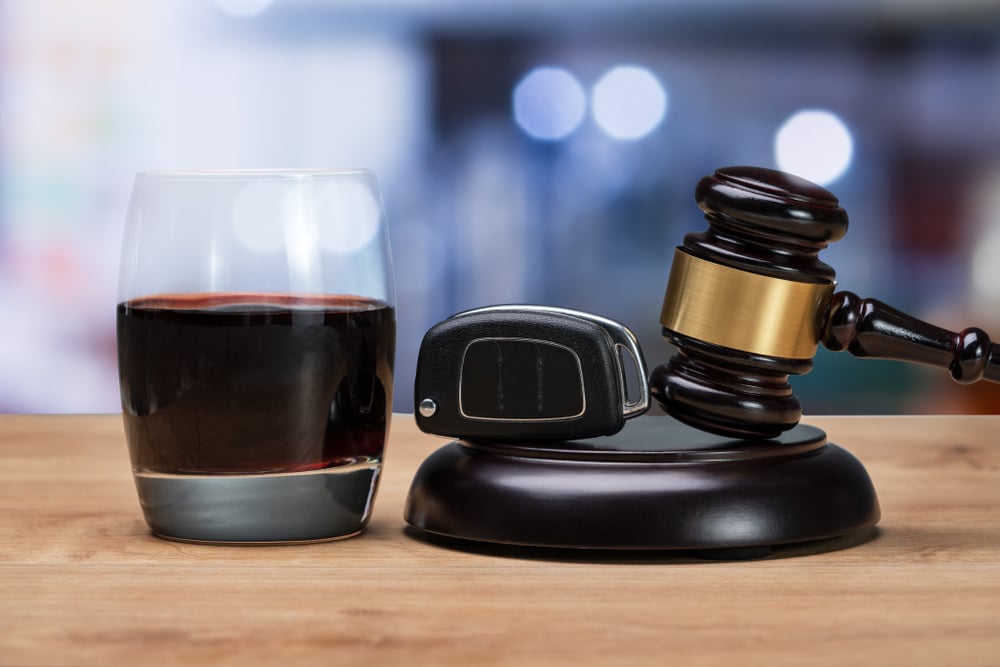
Colorado maintains a dual-level system for impaired driving offenses: Driving Under the Influence (DUI) for blood alcohol concentration (BAC) of 0.08% or higher, and Driving While Ability Impaired (DWAI) for BAC between 0.05% and 0.08%. The state operates under express consent laws, requiring drivers to submit to chemical testing when requested by law enforcement with probable cause.
Law enforcement agencies throughout Colorado coordinate efforts through various task forces and specialized units. The state implements heightened enforcement periods during holidays and events known for increased impaired driving incidents. Colorado’s unique geographical challenges, from urban centers to mountain communities, require specialized enforcement strategies.

0.08% or higher for regular drivers and 0.04% for commercial drivers

Yes

9 months

Mandatory

Yes (0.17%+)
Colorado’s DUI landscape is significantly influenced by its recreational marijuana legalization, creating additional challenges for law enforcement in detecting and proving drug-impaired driving. The state’s robust tourism industry, particularly in mountain resort areas, contributes to seasonal fluctuations in DUI incidents.
The combination of high-altitude effects on alcohol metabolism and the state’s craft brewery culture presents unique challenges for both drivers and law enforcement. Urban areas face different challenges than rural and mountain communities, particularly regarding access to alternative transportation and treatment resources.
First-time DUI offenders in Colorado face penalties including 5 days to 1 year in jail, fines from $600 to $1,000, up to 96 hours of public service, and license revocation for 9 months. DWAI first offenses carry slightly lower penalties. The state employs escalating penalties for subsequent offenses, with look-back periods considering lifetime convictions.
Multiple offenses result in mandatory jail time, increased fines, longer license revocation periods, and mandatory treatment requirements. Fourth and subsequent offenses are classified as felonies, carrying potential prison sentences and extended license revocation periods. The state also implements mandatory ignition interlock requirements for most offenders.
Colorado law provides enhanced penalties for aggravating factors such as high BAC levels (0.15% or higher), causing injury or death, and having children in the vehicle. These circumstances can result in mandatory jail time, extended license revocation periods, and increased fines. The state maintains separate vehicular homicide and assault statutes for DUI-related deaths and serious injuries.
The state’s commercial driver regulations impose stricter BAC limits (0.04%) and harsher penalties affecting commercial licensing. Underage drivers face “zero tolerance” laws with severe consequences for any measurable alcohol content, including extended license suspension periods and mandatory education programs.
Colorado employs a multi-faceted enforcement approach including routine patrols, sobriety checkpoints, and saturation patrols in high-risk areas. Law enforcement officers receive specialized training in both alcohol and drug impairment detection, including Advanced Roadside Impaired Driving Enforcement (ARIDE) and Drug Recognition Expert (DRE) certification.
The state coordinates enforcement efforts through the “Heat Is On” campaign, targeting specific high-risk periods throughout the year. Local agencies receive state and federal grant funding to support overtime enforcement operations and specialized DUI patrol units.
Colorado law enforcement agencies utilize modern detection technologies including preliminary breath testing devices for field screening and evidential breath testing instruments at detention facilities. The state maintains strict certification requirements for testing equipment and operators, with regular accuracy verification protocols.
Blood testing is conducted through certified laboratories with chain of custody requirements exceeding federal standards. The state has implemented advanced roadside drug testing methods, including oral fluid testing pilots, to address cannabis and other drug impairment detection challenges.
Colorado’s treatment system incorporates multiple levels of intervention based on risk assessment and offense severity. Programs range from education-only for first-time offenders to intensive treatment for repeat offenders or those with high BAC levels. The state requires standardized alcohol and drug evaluations to determine appropriate treatment levels.
Treatment providers must maintain state certification and follow established curriculum requirements while adapting to individual needs. Programs combine education, group therapy, individual counseling, and substance abuse treatment as needed. The state emphasizes evidence-based practices and regular program evaluation.
Colorado implements a tiered treatment system with requirements based on offense level, BAC content, and assessment results. Level I education programs require a minimum of 12 hours for first-time offenders, while Level II education and therapy programs can extend to 86 hours or more for repeat offenders or those with high BAC levels.
The state requires completion of assigned treatment programs for license reinstatement. Programs must address both alcohol and drug issues, with specialized tracks for cannabis-involved offenses. Failure to complete required treatment results in license suspension continuation and possible additional penalties.


Colorado utilizes various monitoring methods including probation supervision, random testing, and ignition interlock devices. The state’s interlock program requires certified installation and maintenance, with regular reporting of any violations. Continuous alcohol monitoring devices may be required for repeat offenders or those with high BAC levels.
Probation departments coordinate with treatment providers and courts to ensure compliance with program requirements and sobriety conditions. The state maintains a database of offender compliance information accessible to relevant agencies and treatment providers.
Colorado operates a dual-track system where DUI arrests trigger both criminal court proceedings and administrative actions through the Department of Revenue’s Division of Motor Vehicles (DMV). The administrative process begins immediately upon arrest, with drivers having seven days to request a hearing to contest license revocation.
The DMV maintains separate tracks for alcohol and drug offenses, with different requirements for reinstatement. Administrative actions proceed independently of criminal cases, allowing for license revocation even if criminal charges are reduced or dismissed.
DMV hearings focus on specific issues including probable cause, proper arrest procedures, and chemical test validity. These hearings must be requested within seven days of arrest and provide an opportunity to contest license revocation. Hearing officers review evidence and testimony to determine whether revocation should be sustained.
The process includes provisions for early reinstatement with ignition interlock devices and restricted licenses for eligible offenders. Commercial drivers face separate administrative procedures with additional requirements and restrictions.
Colorado DUI cases proceed through county courts for misdemeanors and district courts for felonies. Initial appearances typically occur within days of arrest, where defendants receive formal charges and advisement of rights. The court process includes pre-trial conferences, motions hearings, and either trial proceedings or plea agreements.
Several jurisdictions operate specialized DUI courts focusing on rehabilitation of repeat offenders through intensive supervision and treatment. These courts implement regular progress reviews and coordinate with treatment providers, probation services, and other support agencies.
Multiple agencies collaborate in Colorado’s DUI enforcement system. The Department of Revenue’s DMV handles licensing actions and maintains driving records. The Colorado State Patrol leads enforcement efforts and coordinates the state’s breath testing program. The Office of Behavioral Health oversees treatment provider certification and program standards.
The Colorado Department of Transportation manages prevention programs and grant funding. Local law enforcement agencies and district attorneys’ offices handle most enforcement and prosecution duties. The state health department oversees blood testing laboratories and maintains testing standards.
Colorado participates in the Interstate Driver License Compact, sharing conviction information with other states and recognizing out-of-state DUI convictions for penalty enhancement. The state’s high tourism industry creates unique challenges with out-of-state offenders and license reciprocity issues.
Military personnel stationed in Colorado face both state and military consequences for DUI offenses. The state maintains agreements with neighboring states for cross-border enforcement and information sharing, particularly important in areas near state borders.
Colorado’s diverse landscape includes federal lands, tribal territories, and military installations, creating complex jurisdictional considerations. Enforcement on federal properties requires coordination between state and federal authorities. National parks and forests maintain separate enforcement units while working with state and local agencies.
The state’s ski resorts and mountain communities present unique enforcement challenges, particularly during peak tourist seasons. Tribal lands require specific agreements between tribal and state law enforcement for DUI enforcement and prosecution.
DUI incidents in Colorado generate substantial direct costs for enforcement, prosecution, and incarceration, estimated at over $800 million annually. Additional expenses include emergency response services, property damage, and medical care for injury crashes. The average DUI arrest costs approximately $10,000 in direct expenses.
Local jurisdictions bear significant costs for enforcement and court operations, while state agencies absorb expenses for program administration and oversight. Revenue from fines and fees offset some costs but represents only a fraction of total expenses.


The broader societal impact of DUI in Colorado extends beyond direct monetary costs. Lost productivity due to injury, court appearances, and incarceration affects both employers and the state economy. Healthcare systems absorb significant costs for emergency care and long-term treatment of DUI-related injuries.
Communities face increased insurance rates and strain on emergency services. Families of both victims and offenders experience emotional trauma and financial hardship. The state estimates annual societal costs exceeding $3 billion when including all indirect impacts.
Recent legislative efforts focus on strengthening penalties for drug-impaired driving and expanding treatment options. Proposals under consideration include implementing new testing technologies for cannabis impairment and enhancing penalties for high-BAC offenses.
The state legislature regularly reviews DUI laws to address emerging challenges, particularly regarding polysubstance use and new synthetic drugs. There is increasing emphasis on prevention and alternative transportation options, especially in tourist-heavy areas.
Colorado leads in adopting new enforcement technologies, including advanced breath testing devices and oral fluid testing for drug detection. Law enforcement agencies increasingly utilize body cameras and automated license plate readers to enhance DUI detection and documentation.
The state is implementing real-time data sharing between agencies and exploring new monitoring technologies for offender supervision. Advanced analytics help identify high-risk areas and times for enhanced enforcement efforts.
Drug-impaired driving presents significant challenges in Colorado, particularly following cannabis legalization. Law enforcement agencies continue expanding training and implementing new detection methods. The combination of altitude effects, alcohol, cannabis, and other substances creates complex enforcement and testing challenges.
The growth of ride-sharing services has impacted urban DUI patterns, though rural and mountain areas continue facing transportation accessibility issues. The state is addressing emerging concerns related to autonomous vehicles and their interaction with impaired driving laws.
Colorado implements comprehensive prevention strategies targeting various demographics. School-based programs focus on youth education, while community initiatives engage businesses and organizations. The state conducts targeted campaigns during high-risk periods and maintains year-round public awareness efforts.
Programs are tailored to specific audiences, including young drivers, college students, and tourist populations. The state provides grants to local organizations for innovative prevention programs and alternative transportation initiatives, particularly in resort communities.
DUI convictions significantly impact employment opportunities in Colorado. Commercial drivers face mandatory disqualification periods and potential career-ending consequences. The state’s tourism and service industries often require clean driving records, affecting employment prospects in these key sectors.
Professional licenses may be affected, with mandatory reporting requirements for certain occupations. The state’s background check system makes DUI convictions visible to employers, potentially limiting career advancement across various industries, particularly in transportation, healthcare, and education sectors.
Colorado’s treatment programs show varying success rates based on program intensity and participant engagement. Studies indicate that comprehensive programs combining education, counseling, and monitoring achieve recidivism rates 25-35% lower than education-only approaches. Programs incorporating altitude considerations and substance-specific treatment show particularly promising results.
The state tracks program effectiveness through mandatory reporting requirements and outcome studies. Data indicates improved success rates for offenders completing both treatment and aftercare programs, especially when combined with regular monitoring and support services.
DUI convictions in Colorado result in significant insurance consequences. Insurers typically increase premiums by 300-500% following a DUI conviction, with some carriers declining coverage. High-risk insurance requirements can last up to seven years following conviction.
The state requires proof of insurance meeting specific coverage levels before license reinstatement. Multiple offenses often result in placement in assigned risk pools with substantially higher premiums.


Colorado requires SR-22 certification for all DUI offenders seeking license reinstatement. The filing must be maintained for at least three years from the conviction date or license reinstatement, whichever is later. Any lapse in coverage triggers automatic license suspension and restarts the filing period.
Insurance companies must immediately notify the DMV of any coverage cancellation or lapse. The state maintains strict monitoring of SR-22 compliance and requires higher minimum coverage limits than standard policies.
DUI convictions impact numerous aspects of daily life in Colorado. Transportation challenges are particularly significant given the state’s geography and limited public transit options in many areas. Housing options may be limited due to criminal background checks and insurance requirements.
Financial strain from fines, increased insurance costs, and treatment expenses creates long-term economic challenges. Social stigma and professional relationships can be significantly affected, particularly in smaller communities. Many offenders face challenges maintaining employment and managing transportation alternatives in the state’s diverse geographical settings.
Colorado maintains a comprehensive DUI enforcement and prevention system that addresses unique challenges posed by its geography, climate, and legal framework. The state’s approach balances strict enforcement with rehabilitation opportunities, recognizing the complex nature of substance use issues. The combination of high altitude effects, legal cannabis, and a robust tourism industry creates distinctive challenges requiring specialized solutions.
The legal framework establishes clear consequences while providing opportunities for rehabilitation through a tiered treatment system. Administrative procedures work alongside criminal proceedings to ensure swift action while maintaining due process rights. The state’s implementation of technology and coordination between agencies enhances enforcement effectiveness and offender monitoring.
Treatment and rehabilitation programs form an essential component of the state’s approach, with requirements tailored to offense severity and individual needs. The economic impact extends beyond direct penalties to include broader societal costs, particularly affecting employment opportunities and insurance expenses. The state’s tourist economy and geographical diversity require flexible approaches to enforcement and treatment delivery.
Recent developments focus on addressing challenges related to drug-impaired driving and the integration of new enforcement technologies. Prevention and education programs continue to evolve, with increasing emphasis on targeted interventions and community engagement. The system’s effectiveness is demonstrated through declining DUI rates in many areas, though challenges remain in rural regions and tourist destinations.
The state continues to adapt its approach through legislative updates and program evaluations, ensuring the system evolves to meet changing circumstances while maintaining its fundamental goal of reducing impaired driving incidents. Success depends on the continued coordination between enforcement agencies, treatment providers, and community organizations, supported by ongoing technological advancement and public awareness efforts.
At DUI 101, our mission is to empower you with the knowledge needed to make informed decisions during this challenging time. Explore our articles and guides to better understand your situation and the steps ahead.
© 2024 Chapman SEO LLC. This website is for educational and informational purposes only. All content is created using AI technology and maintained by non-lawyers and should not be considered legal advice. The information provided is general in nature and may not be suitable for your specific situation. Always consult with a qualified legal professional for advice regarding your individual circumstances. We do not create attorney-client relationships through this website. By using this site, you acknowledge that you have read and understand these terms.